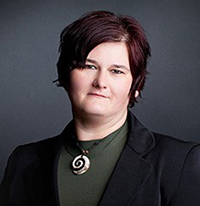 | Barbara Bank is member of the Committee on National Remembrance (Hungary) and Research Fellow at the Historical Archives of the Hungarian State Security. Her research focuses on the crimes of Communist regime in Hungary and she participates in teaching the course “Coming to terms with the recent past: national memory and the post-Communist transition in Central-Eastern Europe” under the Master’s program in history at the Ivan Franko National University of Lviv. Studies: She graduated from Pázmány Péter Catholic University (Budapest) in history–art history and European policy (MA, 2001), later also pursued studies in history at the Institute for Historical Review, Faculty of Arts, Pázmány Péter Catholic University (2005–2008). Qualification: She received her PhD in history from Pázmány Péter Catholic University in 2013. Her doctoral thesis was on “Internment system in Hungary (1945–1953) especially the internment camp Recsk”. Publications: She is the co-author of Recsk: The Hungarian Gulag: 1950–1953 (2012) and “Állami titok”: internáló- és kényszermunkatáborok Magyarországon 1945–1953 (2012). Personal page |
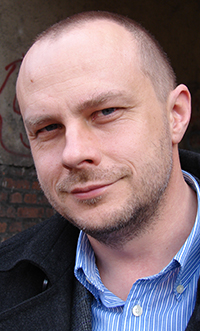 | Jan Jacek Bruski is Associate Professor at the Institute of History, Jagiellonian University (Krakow, Poland) and member of the Scholarly Council of the Institute of History, Polish Academy of Sciences (Warsaw, Poland). His scholarly interests lie in the contemporary history of East-Central Europe, diplomatic history, nationality problems and he participates in teaching the course “Central Europe in the international relations of European states, 1918 till now” as well as contributes to research seminar under the Master’s program in history at the Ivan Franko National University of Lviv. Studies: He graduated from Silesian University (Katowice, Poland) in history and law (MA, 1993), later took up his doctoral studies in history at Jagiellonian University (1993–1999) Qualification: He received his PhD in history in 1999 and Polish Habilitation degree (Doctorus Habilitatus) in 2011. Publications: His monographs include Petlurowcy. Centrum Państwowe Ukraińskiej Republiki Ludowej na wychodźstwie, 1919–1924 (2000, 2004), Ukraina (2006), Miedzy prometeizmem a Realpolitik. II Rzeczpospolita wobec Ukrainy Sowieckiej 1921–1926 (2010). Personal page |
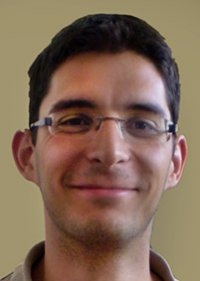 | Bálint Varga is Research Fellow at Hungarian Academy of Sciences, Centre for Humanities, Institute of History and specializes in nationalism studies and historiography, with special attention to the late Habsburg Empire. He participates in teaching the course “The Habsburg Monarchy as Central Europe’s history and nostalgia” and contributes to research seminar under the Master’s program in history at the Ivan Franko National University of Lviv. Studies: He studied history and international relations in Budapest and Heidelberg (2001–2006) and graduated with distinction from Central European University (Budapest) in Central European history (MA, 2007). Qualification: He received his PhD in history (magna cum laude) from the Johannes Gutenberg University of Mainz – the Loránd Eötvös University of Budapest in 2013. Publications: He is the author of Rise and Fall of an Austrian Identity in the Provincial Historiography of Bukovina in: Austrian History Yearbook 46 (2015), and In the Middle of the Nation, on the Margins of the Academia: Historiography in Banat in the Long 19th Century in: New Europe College Yearbook (2012-2013). Personal page |
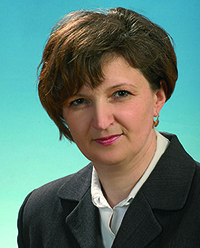 | Ľubica Harbuľová is Docent at the Institute of History, Faculty of Philosophy, the University of Prešov (Slovakia). A specialist on twentieth-century Russia and Eastern Europe, she participates in teaching the course “Central Europe in the international relations of European states, 1918 till now” under the Master’s program in history at the Ivan Franko National University of Lviv. Studies: She graduated from Pavel Jozef Šafárik University in Košice (Slovakia) in history–Russian language and literature (1985) and took up her doctoral studies in history at the Institute of History, Slovak Academy of Sciences (1992–1997). Qualification: She received her C.Sc. degree in history in 1998 and Docent in History degree in 2001. Publications: Her works include Sibírsky autonomizmus: zdroje, prejavy, reflexie (1917–1939) (2010), Ruská emigrácia a Slovensko (2001), Ladomirovské reminiscencie. Z dejín ruskej pravoslávnej misie v Ladomirovej 1923–1944 (2000). Personal page |
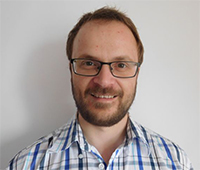 | Radek Lipovski is Secretary in the Department of History, Faculty of Arts, the University of Ostrava (Czech Republic) and specializes in historical demography. He participates in teaching the course “Living conditions, Violence and Population Changes in Modern Central Europe” and contributes to research seminar under the Master’s program in history at the Ivan Franko National University of Lviv. Studies: He graduated from the University of Ostrava in History (Mgr., 2004) and took up his doctoral studies in economic and social history in the Department of History, Faculty of Arts, the University of Ostrava (2004–2008). Qualification: He received his PhD in economic and social history from the University of Ostrava in 2008. Publications: He is the author of Ekonomická aktivita žen v textilním městě Frýdku na přelomu 19. a 20. století in: Historická demografie 38,1 (2014), Austriackie spisy pośmiertne – źródła do badań historii kulturalnej, cyklu życia, starości, oraz medycyny? in: Zielonogórskie spotkania z demografią 2. Społeczno-gospodarcze uwarunkowania i konsekwencje wydłużania życia ludzkiego w Europie środkowej w czasach nowożytnych (2011). Personal page |
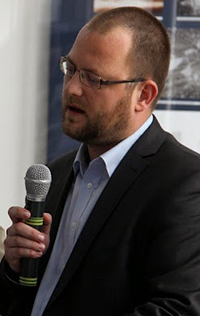 | Miroslav Michela is Assistant Professor at the Institute of Czech History, Faculty of Arts, Charles University in Prague (Czech Republic) and Senior Research Fellow at the Institute of Historical Sciences, Slovak Academy of Sciences (Slovakia). His numerous publications focus on the twentieth-century history of Central Europe, foreign relations, nationalism, commemorations and he participates in teaching the course “Coming to terms with the recent past: national memory and the post-Communist transition in Central-Eastern Europe” as well as contributes to research seminar under the Master’s program in history at the Ivan Franko National University of Lviv. Studies: He graduated from the Comenius University of Bratislava in history–civics education and ethics (Mgr., 2002) and took up his doctoral studies in history at the Institute of Historical Sciences, Slovak Academy of Sciences (2002–2007). Qualification: He received his Ph.D. in history from the Institute of Historical Sciences, Slovak Academy of Sciences in 2007. His doctoral thesis was on “Slovak Question in the Politics of Hungary, 1919– 1927”. Publications: He edited Ján Spišiak: Spomienky z Budapešti 1939-1944 (2010) and authored essays for Slovensko v labyrinte moderných európskych dejín : pocta historikov Milanovi Zemkovi (2014), Mierové zmluvy v kontexte geopolitiky 20. a 21. storočia (2013), Overcoming the old Borders : beyond the Paradigm of Slovak National History (2013), Komunisti a povstania : ritualizácia pripomínania si protifašistických povstaní v strednej Európe (1945–1960) (2012), Paměť míst, událostí a osobností: historie jako identita a manipulace (2011). Personal page |
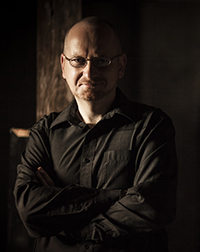 | Marek Příhoda is Director of the Institute of East European Studies, Faculty of Arts, Charles University in Prague (Czech Republic) and specializes in Slavonic studies. He participates in teaching the course “The Shaping of Modern Central Europe: Habsburg modernization and Slavonic politics” and contributes to research seminar under the Master’s program in history at the Ivan Franko National University of Lviv. Studies: He graduated from Charles University in political science–East European studies, specialization: Russian philology (Mgr., 2001) and in history–Slavonic studies, specialization: Croatian philology (Mgr., 2004), later took up his doctoral studies in Slavonic literatures at Charles University (2002–2008). Qualification: He received his Ph.D. in Slavonic literatures from Charles University in 2008. His doctoral thesis was on “Veniamin, Ivan Peresvetov, Juraj Križanić in Russia (and the Historical-Cultural Context of Their Writings)”. Publications: He is the co-author of Křižovatky Slovanů (2015), Prekolonialismus, kolonialismus, postkolonialismus. Impéria a ti ostatní ve východní a jihovýchodní Evropě (2015), Slované mezi tradicí a modernitou (2014). Personal page |
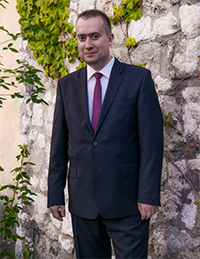 | Łukasz Tomasz Sroka runs the Department of History and Archival Studies of the Pedagogical University of Krakow (Poland). His scholarly interests include the social and urban history of East-Central Europe in the 19th and 20th centuries, Jewish history and culture and he participates in teaching the course “The Shaping of Modern Central Europe: Habsburg modernization and Slavonic politics” under the Master’s program in history at the Ivan Franko National University of Lviv. Studies: He graduated from the Pedagogical Academy of Krakow in history (MA, 2003) and took up his doctoral studies in history at the Pedagogical Academy of Krakow (2003–2006). Qualification: He received his PhD in history from the Pedagogical Academy of Krakow in 2006 and Polish Habilitation degree (Doctorus Habilitatus) from the Pedagogical University of Krakow in 2013. Publications: His works include Rada Miejska we Lwowie w okresie autonomii galicyjskiej 1870–1914. Studium o elicie władzy (2012), Sprawiedliwi chcą być doskonali. Z dziejów wolnomularstwa w Krakowie od XVIII wieku do współczesności (2010), Żydzi w Krakowie. Studium o elicie miasta. 1850–1918 (2008). He is also the co-editor of Polskie korzenie Izraela. Wprowadzenie do tematu. Wybór źródeł (2015). Personal page |
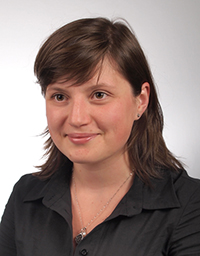 | Wiktoria Kudela-Świątek is Coordinator for Arts, Humanities and Social Sciences at the National Science Center (Poland) and Translator. She specializes in oral history, realms of memory and collective memory and participates in teaching the course “Coming to terms with the recent past: national memory and the post-Communist transition in Central-Eastern Europe” as well as contributes to research seminar under the Master’s program in history at the Ivan Franko National University of Lviv. Studies: She graduated from the Institute of History, Jagiellonian University (MA, 2007), later pursued studies at the Institute of East-Slavic Philology of the same university (MA, 2005–2010) and simultaneously took up her doctoral studies in the Historical Department of Jagiellonian University (2007–2011). Qualification: She received her PhD in history from Jagiellonian University in 2011. Her doctoral thesis was on “National- and Religion-Motivated Persecution as Recollected by Poles in Kazakhstan. A Study in Oral History”. Publications: Her works include Miejsca (nie)pamięci. O upamiętnianiu Wielkiego Głodu na Ukrainie 1932–1933 (2014), Odpamiętane... O historii mówionej na przykładzie narracji kazachstańskich Polaków o represjach na tle narodowościowym i religijnym (2013), Z ziemi kazachskiej do Polski..., t.1 (2007). Personal page |
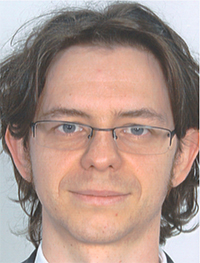 | Adam Świątek is Assistant Lecturer at the Institute of History, Jagiellonian University in Krakow (Poland). His research interests center on historical consciousness and national identities in nineteenth-century East-Central Europe and he participates in teaching the course “The Commonwealth of Three Nations: history and myth” as well as contributes to research seminar under the Master’s program in history at the Ivan Franko National University of Lviv. Studies: He graduated from the Institute of History, Jagiellonian University in history (MA, 2008) and took up his doctoral studies in history in the Historical Department of Jagiellonian University (2008–2012). Qualification: He received his PhD in history from Jagiellonian University in 2012. His doctoral thesis was on “Gente Rutheni, Natione Poloni in Galicia”. Publications: He is the author of Gente Rutheni, natione Poloni. Z dziejów Rusinów narodowości polskiej w Galicji (2014), “Lach serdeczny”. Jan Matejko a Rusini (2013) and the co-editor of Monarchia, człowiek, wojna. Codzienne i niecodzienne życie mieszkańców Galicji w czasie pierwszej wojny światowej (2014). Personal page |
Central Europe through history: from multinational monarchies to V4 cooperation
